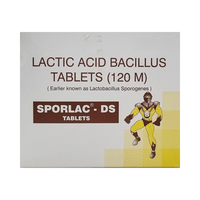Anxipan Capsule

Rs.141for 1 strip(s) (10 capsules each)
food interaction for Anxipan
alcohol interaction for Anxipan
pregnancy interaction for Anxipan
lactation interaction for Anxipan
food
alcohol
pregnancy
lactation
Anxipan Capsule may be taken with or without food, but it is better to take it at a fixed time.
None
None
CAUTION
It is unsafe to consume alcohol with Anxipan Capsule.
UNSAFE
Anxipan Capsule may be unsafe to use during pregnancy. Although there are limited studies in humans, animal studies have shown harmful effects on the developing baby. Your doctor will weigh the benefits and any potential risks before prescribing it to you. Please consult your doctor.
CONSULT YOUR DOCTOR
Anxipan Capsule is probably unsafe to use during breastfeeding. Limited human data suggests that the drug may pass into the breastmilk and harm the baby.
CONSULT YOUR DOCTOR
SALT INFORMATION FOR Anxipan
Amitriptyline(10mg)
Uses
How it works
Amitriptyline contains Amitriptyline, a tricyclic antidepressant. It has anticholinergic and sedative properties. It prevents the reuptake, and hence the inactivation of neurotransmitters called noradrenaline and serotonin, that are present at the nerve terminals in our brain. Reuptake prevention of these monoamine neurotransmitters potentiate their action in the brain. This appears to be associated with the antidepressant activity and helps in regulating the mood. It also stops the transmission of pain signals from nerves to the brain thereby relieving neuropathic pain (pain from damaged nerves).
Common side effects
Constipation, Dryness in mouth, Orthostatic hypotension (sudden lowering of blood pressure on standing), Weight gain, Aggressive behavior, Nasal congestion (stuffy nose), Sleepiness, Dizziness, Headache, Decreased libido, Nausea, Fatigue, Confusion, Tremors, Speech disorder, Palpitations, Taste change, Paresthesia (tingling or pricking sensation), Abnormality of voluntary movements, Loss of accommodation, Atrioventricular block, Micturition disorders, Erectile dysfunction, Abnormal ECG, Decreased sodium level in blood, Facial swelling, Hypomania, Mania, Anxiety, Insomnia (difficulty in sleeping), Convulsion, Ringing in ear, Rash, Liver impairment, Akathisia (inability to stay still), Suicidal thoughts, Arrhythmia (irregular heartbeats), Hair loss
Pantoprazole(40mg)
Uses
Pantoprazole is used in the treatment of heartburn, gastroesophageal reflux disease (acid reflux) and peptic ulcer disease.
How it works
Pantoprazole is a proton pump inhibitor (PPI). It works by reducing the amount of acid in the stomach which in turn relieves acid-related indigestion and heartburn.
Common side effects
Diarrhea, Flatulence, Headache, Nausea, Vomiting, Dizziness, Abdominal pain, Blurred vision, Constipation, Joint pain, Injection site reaction, Edema (swelling), Dryness in mouth, Hepatitis (viral infection of liver), Decreased white blood cell count, Low blood platelets, Rash, Red spots or bumps, Fundic gland polyps, Jaundice, Systemic lupus erythematosus, Clostridium difficile associated diarrhea, Change in body weight, Increased triglyceride level in blood, Rhabdomyolysis
SUBSTITUTES FOR Anxipan
No substitutes foundExpert advice FOR Anxipan
- It may take 4 to 6 weeks for Amitriptyline to start working. Keep taking it as prescribed.
- It may cause sleepiness. Take it at bedtime and do not drive or do anything requiring concentration until you know how it affects you.
- Avoid consuming alcohol when taking Amitriptyline as it may cause excessive sleepiness.
- Monitor your weight during the treatment as this medicine can cause weight gain and increased appetite.
- It may cause sudden drop in your blood pressure. Rise slowly if you have been sitting or lying down.
- Talk to your doctor if you notice sudden mood changes or develop suicidal thoughts.
- Pay close attention to any changes, especially sudden changes, in mood, behaviors, thoughts, or feelings. This is very important when an antidepressant medicine is started or when the dose is changed.
Frequently asked questions FOR Anxipan
Amitriptyline
Q. What other lifestyle changes should I make to get maximum benefit of Amitriptyline?
Antidepressants, including Amitriptyline, are just one of several approaches to treat depression. Certain lifestyle changes can help you get maximum benefit of Amitriptyline and help you recover fast. Keeping active and eating a healthy diet can make a significant difference to how quickly you recover from depression. Think positively and try to discuss your thoughts with others to reduce stress. Practice yoga or take up a hobby. Ensure that you have a sound sleep to calm your mind. Stay away from smoking or alcohol consumption as these will only worsen your depression. Take your medicines as prescribed even if you start feeling better.
Q. I have been prescribed Amitriptyline for pain. When will I start feeling better?
You may start feeling better after 2 weeks of starting Amitriptyline. However, it may take 4-6 weeks to see the full benefits of the medicine.
Q. Can I stop taking Amitriptyline when my pain is relieved?
No, do not stop taking Amitriptyline even if the pain is relieved. You should use Amitriptyline as advised by the doctor. Stopping the medicine suddenly may cause unpleasant symptoms like headache, feeling unwell, sleeplessness and irritability. Consult your doctor for the duration of the treatment since the dose of Amitriptyline needs to be reduced gradually.
Pantoprazole
Q. What is Pantoprazole used for?
Pantoprazole is used for the treatment of peptic ulcer disease, reflux esophagitis or gastroesophageal reflux disease (GERD). Pantoprazole prevents acidity associated with use of painkillers. It is also used to treat a disease associated with excessive acid production in the stomach known as Zollinger Ellison syndrome (ZES). It works by reducing the amount of acid made by your stomach and thus relieves your symptoms.
Q. How long does it take for Pantoprazole to work?
You should start to feel better within 2 to 3 days. It may take up to 4 weeks for Pantoprazole to work properly so you may still have some symptoms during this time.
Q. Is Pantoprazole safe?
Yes, Pantoprazole is relatively safe. Most of the people who take Pantoprazole do not get a side effect. It is advised to be taken as directed by the doctor for maximum benefits.






















